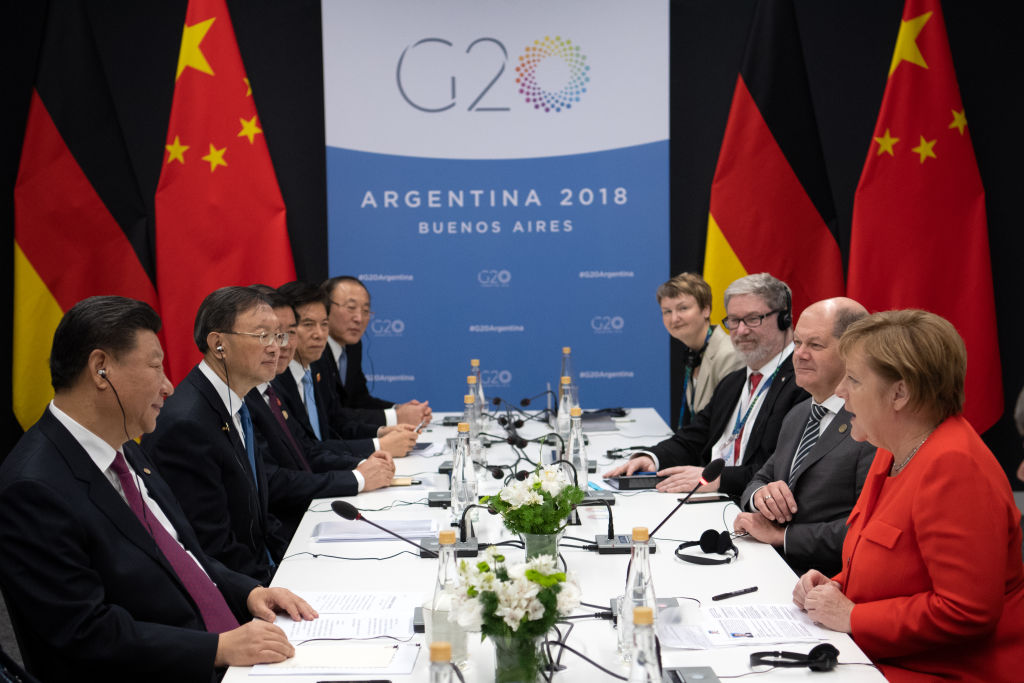As the leaders of the world’s largest economies convene on Friday in Osaka, Japan, for the 14th G20 Summit, headlines are likely to focus on meetings between world leaders, rather than this year’s themes of sustainable growth, innovation and health. Those talks include ones between President Donald Trump and President Xi Jinping — though a breakthrough in the U.S.-China trade war is unlikely. A trilateral meeting between India’s Narendra Modi, Russia’s Vladimir Putin and Xi will also attract attention. But, while such talks are important, they must not overshadow the larger message of this year’s G20: international cooperation still matters, as do the platforms that facilitate such cooperation.
In this era of rising nationalism, institutions such as the United Nations, the World Trade Organization, and NATO have, in many circles, become rhetorical punching bags. Yet the emergence and successes of the G20 indicate that the international system is more resilient and flexible than most people tend to assume.
As a former U.S. Secretary of State and a former Foreign Minister of Argentina, which hosted last year’s G20 summit at the end of November, we see the G20 as a critical platform for international cooperation. Through the Aspen Ministers Forum, a network of former foreign ministers, we have been working on an initiative to reform the international system to meet new challenges. Adaptable institutions such as the G20 are at the heart of this effort.
Founded in 1999 as a forum for finance ministers to consider responses to—and ways to prevent—global economic crises, the G20 brings together major economic powers and key developing countries. After the financial crisis of 2007-2008, the G20 expanded its agenda and established leaders’ summits. Since then, G20 Summits have been used as a time for heads of state to discuss the most pressing global challenges, from terror attacks in Paris to the use of chemical weapons in Syria and the Eurozone debt crisis.
Responding to crises is at the very core of the G20. In Osaka, there will be important discussions about the global impact of the U.S.-China trade conflict, North Korea’s nuclear program and tensions in the Gulf. But given the troubling headwinds facing the current rules-based order, there is a need to go beyond crisis management and towards consensus-building at the Osaka Summit.

This is especially true for three issues that cannot be addressed by any country acting alone: trade, climate change, and the digital economy.
Given its founding mandate, the G20 is well-suited for a discussion of trade. This year, reform of the World Trade Organization is on the agenda at Osaka. Trade is a positive-sum exercise, lowering prices, increasing the variety of goods available and generally raising the quality of life. But the current system of global trade is under siege as many countries, but most notably the United States, are introducing and increasing tariffs. This slide into unilateralism and protectionism is endangering the global economy and undermining the WTO’s ability to enforce a common set of rules.
While tariffs pose short-term threats to economic growth, climate change poses an existential long-term threat to all countries. In the face of this pressing danger, the current U.S. Administration stands shamefully alone. At last year’s G20 Summit in Argentina, all G20 countries except the United States reaffirmed their commitment to the Paris Climate Accord. While this is unlikely to change in Osaka, the G20 remains a useful mechanism for raising awareness, maintaining pressure and building sustained commitment for action on climate change.
The digital economy is another area where international cooperation could be transformative, as the risks to the global economy posed by state and non-state actors conducting cyber intrusions and attacks continue to grow. Efforts are underway to establish international norms for cyberspace, including a call to action released at last year’s Paris Peace Forum. These efforts would benefit from the commitment of G20 leaders to build trust, facilitate the free flow of data and reduce the potential for conflict in cyberspace.
We know from our own experience that getting decision-makers from across borders in the same room is often a battle. But it can be critical to successful cooperation. In-person interaction generates understanding, and, in the words of President Harry Truman, “it is understanding that gives us an ability to have peace.”
Still, international cooperation is not a job for heads of state alone. Citizens of every participating country need to engage their leaders and advocate for resolutions to the issues they find most pressing. It is up to each citizen, especially in democratically elected states, to embrace cooperation and look for shared solutions. Otherwise, there will be no appropriate answers to these shared problems. The rules-based order that we have enjoyed in the post-World War epoch is at risk. Only by bringing together individuals, governments, businesses and civic organizations, and adaptable new institutions such as the G20, can we can create meaningful change.
More Must-Reads from TIME
- Cybersecurity Experts Are Sounding the Alarm on DOGE
- Meet the 2025 Women of the Year
- The Harsh Truth About Disability Inclusion
- Why Do More Young Adults Have Cancer?
- Colman Domingo Leads With Radical Love
- How to Get Better at Doing Things Alone
- Michelle Zauner Stares Down the Darkness
Contact us at letters@time.com